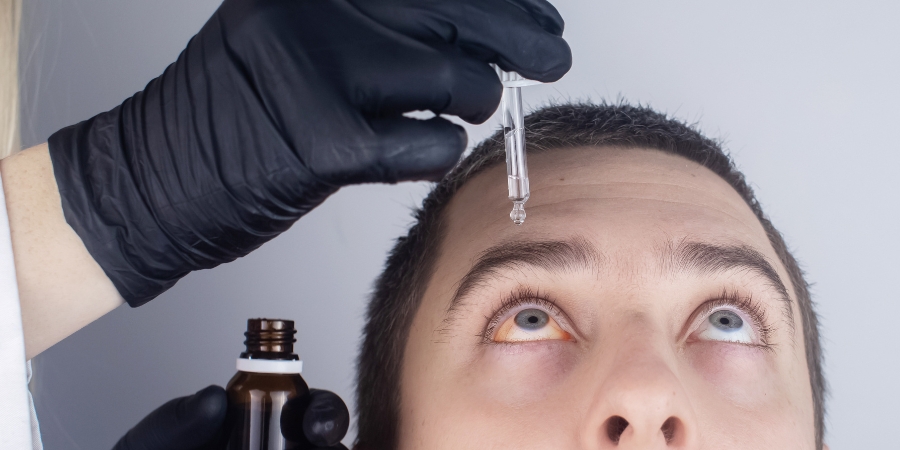Featured

While most people understand the value of protecting their skin from the sunlight, the hazardous impacts of ultraviolet (UV) rays on eye health and wellness usually go forgotten. Whether you're saturating up the sunlight on a summer season day or strolling outdoors on a gloomy afternoon, securing your eyes from UV rays is important.
What Are UV Rays? UV rays are a kind of electro-magnetic radiation released by the sun. They are categorized right into three kinds:
UVA Rays: These permeate deep right into the skin and eyes and can add to lasting damage. UVB Rays: These rays are extra extreme than UVA and are largely in charge of surface-level damage to the eyes and skin. UVC Rays: These are one of the most dangerous but are mostly soaked up by the Earth's ozone layer and do not typically reach us. UVA and UVB rays are the key offenders behind eye-related damage.
Short-Term Effects of UV Direct Exposure on the Eyes. Also temporary exposure to intense UV rays can harm your eyes. One common condition created by this is photokeratitis, or "sunburn of the eye." Signs of photokeratitis include:
Agonizing, red eyes. Level of sensitivity to light. Tearing or too much watering. Temporary vision loss or fuzzy vision. Photokeratitis is usually short-term, but it works as a warning of how harmful UV direct exposure can be, even in tiny doses.
Long-Term Impacts of UV Exposure. Extended exposure to UV radiation can result in a lot more severe and long-term eye conditions, such as:
Cataracts: UV rays can accelerate the formation of cataracts, a problem that causes clouding of the eye's natural lens, resulting in blurry vision and, if untreated, loss of sight.

Macular Deterioration: UV exposure can harm the retina, especially the macula, boosting the risk of age-related macular degeneration (AMD), which affects main vision.
Pterygium: A development of tissue on the white part of the eye that can extend over the cornea, triggering pain, soreness, and vision troubles.
Pinguecula: UV direct exposure can create yellowish down payments to base on the conjunctiva, bring about inflammation and dry skin.
Skin Cancer Cells Around the Eyes: The delicate skin surrounding your eyes is highly at risk to UV radiation, enhancing the risk of skin cancers like basic cell cancer and squamous cell cancer.
Exactly How to Shield Your Eyes from UV Rays. Shielding your eyes from UV rays is basic and calls for a couple of mindful habits:
Purchase Quality Sun glasses: Choose sunglasses that block 100% of UVA and UVB rays. Search for labels that define "UV 400" protection. Wrap-around designs are optimal as they obstruct UV rays from the sides too.
Use a Wide-Brimmed Hat: A hat with a border at the very least three inches large can significantly lower UV exposure to your eyes and face.
Restriction Direct Exposure Throughout Top Hours: UV rays are greatest in between 10 a.m. and 4 p.m. If you need to be outdoors throughout these hours, make sure you're effectively shielded.
Don't Be Deceived by Clouds: UV rays can penetrate with clouds, so it is essential to wear sunglasses even on overcast days.
Safeguard Your Eyes Year-Round: Snow, sand, and water can mirror UV rays, heightening their impacts. Eye defense isn't simply for warm summer season days-- ensure you're covered in all periods.
Use UV-Blocking Contact Lenses: Many get in touch with lenses currently include UV defense. If you wear calls, ask your ophthalmologist regarding lenses with built-in UV filters for included security.
Motivate Eye Defense for Children: Kid's eyes are more delicate to UV rays because their lenses are clearer, allowing even more radiation to get to the retina. See to it they put on sunglasses and hats throughout outdoor activities.
Routine Eye Examinations. Routine examinations with an eye treatment specialist are essential for early detection of any type of UV-related damages. An optometrist or eye doctor can assess your eyes, recommend safety actions, and find conditions like cataracts or macular deterioration at an early stage.
Final thought. By wearing UV-blocking sunglasses, limiting sunlight exposure throughout peak hours, and staying regular with eye exams, you can ensure your eyes remain healthy and balanced and your vision stays clear for years to come. Securing your eyes from UV radiation isn't just regarding convenience-- it's a necessary step in preserving your long-lasting eye wellness.
Latest Posts
Explore Brake Repair & More: Full Auto Care Solutions from Montclare Auto Repair
Discover Exclusive Auto Repair Offers in Chicago at Montclare Auto Repair
Learn About Leading Car Repair Care offered by Montclare Auto Repair – Quality Service Today
More
Latest Posts
Explore Brake Repair & More: Full Auto Care Solutions from Montclare Auto Repair
Discover Exclusive Auto Repair Offers in Chicago at Montclare Auto Repair
Learn About Leading Car Repair Care offered by Montclare Auto Repair – Quality Service Today